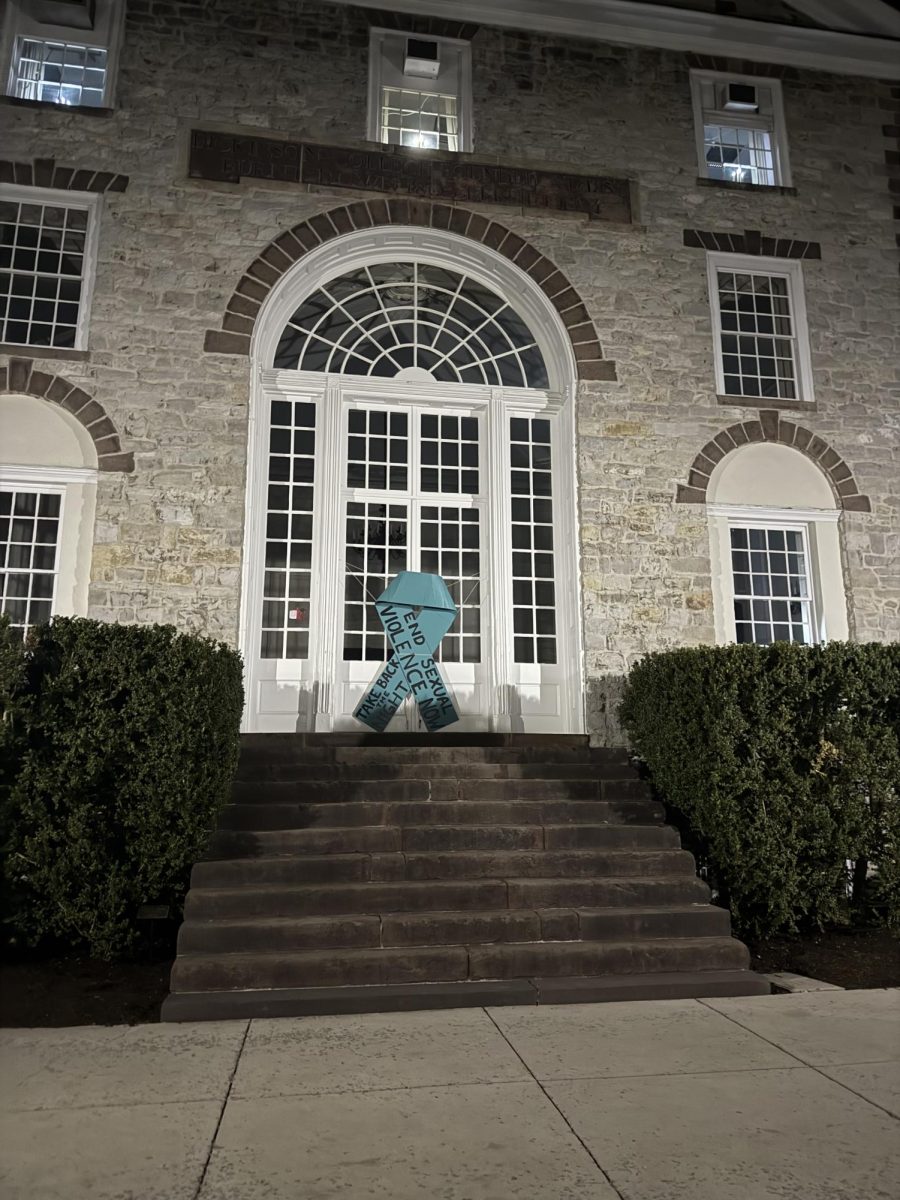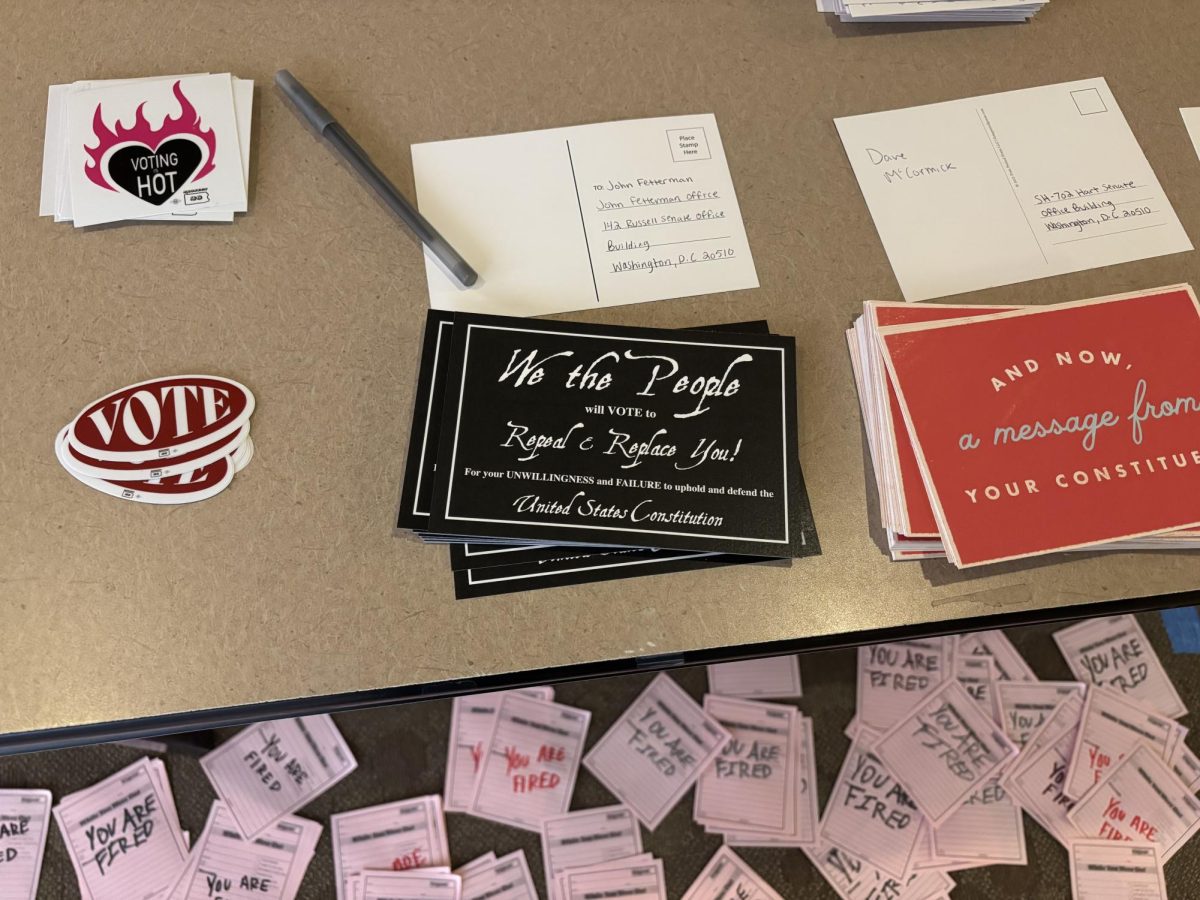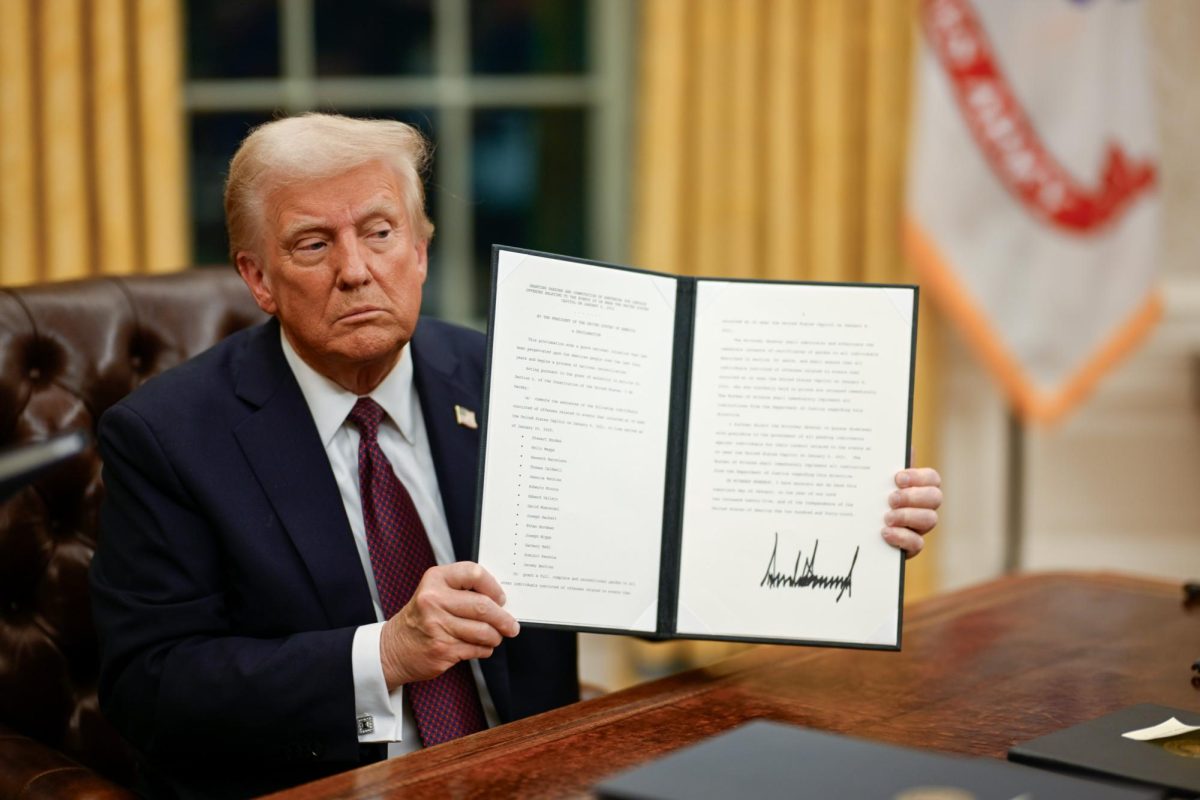Walking down W. Louther Street, there’s an old building with a green door: the Center for the Futures of Native Peoples (CFNP). Or, as the new director Dr. Amanda Cheromiah calls it: “Grandma’s House.”
“We created our house to be a space that’s loving and that’s comforting, a place of healing, a place of connection and joy” said Cheromiah, who plans to blanket the walls with pictures — both historical and of current students and events — to make the space comforting and a ‘home away from home.’
Having the space be one of healing, connection and comfort is important for Cheromiah as the Center works with the heavy history of the nearby Carlisle Indian Industrial School (CIIS). The CFNP homepage gives a quick history of the CIIS: it operated from 1879 to 1918 as “the flagship and model for all other off-reservation boarding schools across the U.S. and Canada” with the aim of assimilating and “civilizing” Indigenous children. It is about a mile away from campus, where the Carlisle Barracks are now.
“Grappling with Carlisle” is what Cheromiah, related to at least five people who went to the CIIS, summarizes her position as. The main question for the CFNP to answer is “How do [we] grapple with Carlisle?” Cheromiah plans to do this through storytelling.
One of her ideas is to create a podcast called “The Indigenous Revolt, Carlisle,” where Native and non-Native storytellers are invited to share stories about the Indian school and how people are processing things.
“Sometimes I think about how a lot of [people who attended the CIIS] didn’t have the opportunity to their story their way,” Cheromiah says, “but now, as an Indigenous storyteller, I can do that. I care a lot about amplifying the narratives of our Indigenous Peoples and teaching others how to do that.”
The CNFP “acknowledges the profound moral failing of Dickinson College’s historic relationship with the CIIS… and is committed to reconciling with this history and facilitating opportunities to discuss the future of Native peoples — the very thing the CIIS and other federal boarding schools were designed to erase.”
In addition to a national call for presentations for its “2025 Symposium: For the Peoples: Native Voices & Beyond,” the Center is working to form a Professional and Student Advisory Fellow Board. The Advisory Board will focus on strategies to help grapple with this heavy history and to make sure there is a support system in place to help people process it.
For students, it’s a leadership opportunity and a place for mentorship, planning to meet for one hour a month with lunch provided. Students will also help share information about events and give feedback on them.
Faculty and staff are also invited to apply to the Center’s thinktank, which is meeting for five weeks on Wednesdays from 4:30 to 6:30 p.m.
“I see the work that we do here,” Cheromiah concludes, “as a spider web, with each strand forming something beautiful and intricate. Sharing stories, hosting events, building connections: they all come together to form a beautiful picture, and that’s how I grapple with what’s here.”






